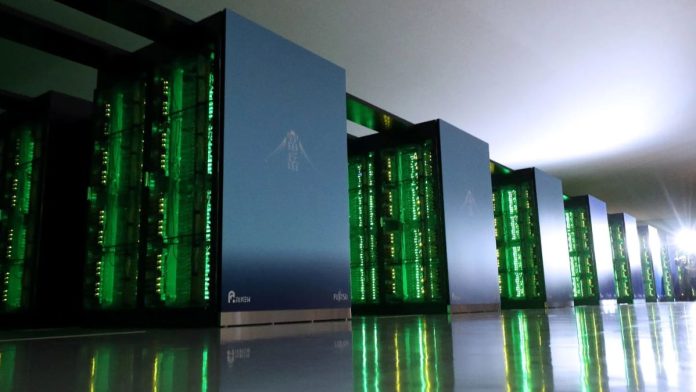In a significant leap forward in computational power, Japan has embarked on an ambitious project to develop a ‘Zeta-Class’ supercomputer, poised to be 1,000 times faster than today’s fastest machines. This cutting-edge technology, slated for completion by 2030, will cement Japan’s position at the forefront of artificial intelligence (AI) development and scientific research.
The Japanese Ministry of Education, Culture, Sports, Science, and Technology (MEXT) has announced the development of a successor to the country’s flagship supercomputer, Fugaku, commencing in 2025. This innovative machine is expected to achieve unprecedented speeds on the zetaFLOPS scale, surpassing the current exaFLOPS barrier.
To put this into perspective, floating-point operations per second (FLOPS) measure a computer’s problem-solving prowess. A zetaFLOPS-capable supercomputer can perform an astonishing one sextillion (1 followed by 21 zeros) calculations per second, dwarfing today’s most powerful supercomputers, which barely exceed one quintillion (1 followed by 18 zeros) calculations per second.
According to Nikkei, Japan’s decision to create this powerhouse was driven by the need to stay abreast of AI-driven scientific research. Supercomputers have consistently proven invaluable to scientists, facilitating simulations of black holes, discovery of novel materials, modeling Earth’s future, and probing mathematical foundations.
Unlike quantum computers, supercomputers are essentially scaled-up versions of everyday desktops and laptops, leveraging processors, memory, and storage to extreme levels. The upgraded zetta-class machine will enable faster training on vast datasets, yielding more accurate, comprehensive, and detailed results.
With an estimated cost of over $780 million, this groundbreaking project underscores Japan’s commitment to advancing AI and scientific research. If successful, the Zeta-Class supercomputer will set a new standard, expanding the possibilities for scientists and researchers worldwide.
By 2030, Japan aims to solidify its position as a leader in AI development and scientific inquiry, paving the way for unprecedented breakthroughs and discoveries.
Must Read: Harini Amarasuriya Sworn in as Sri Lanka’s New Prime Minister: A New Era Begins






